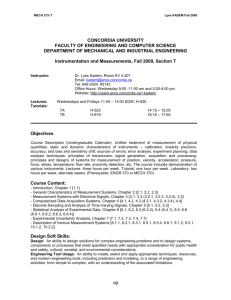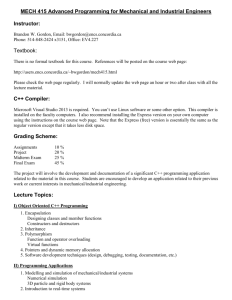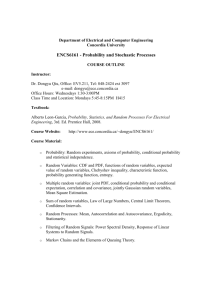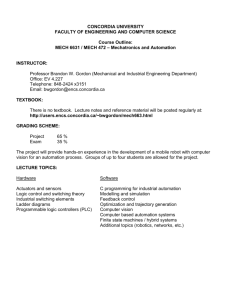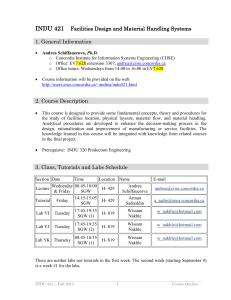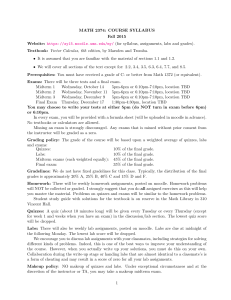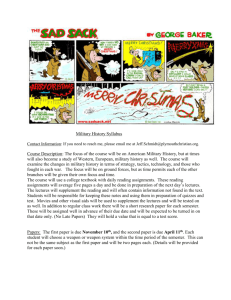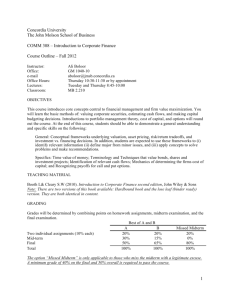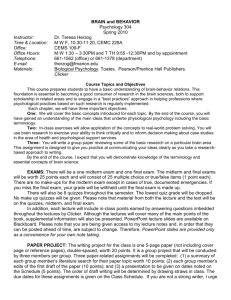MECH 415 Advanced Programming for Mechanical and Industrial
advertisement
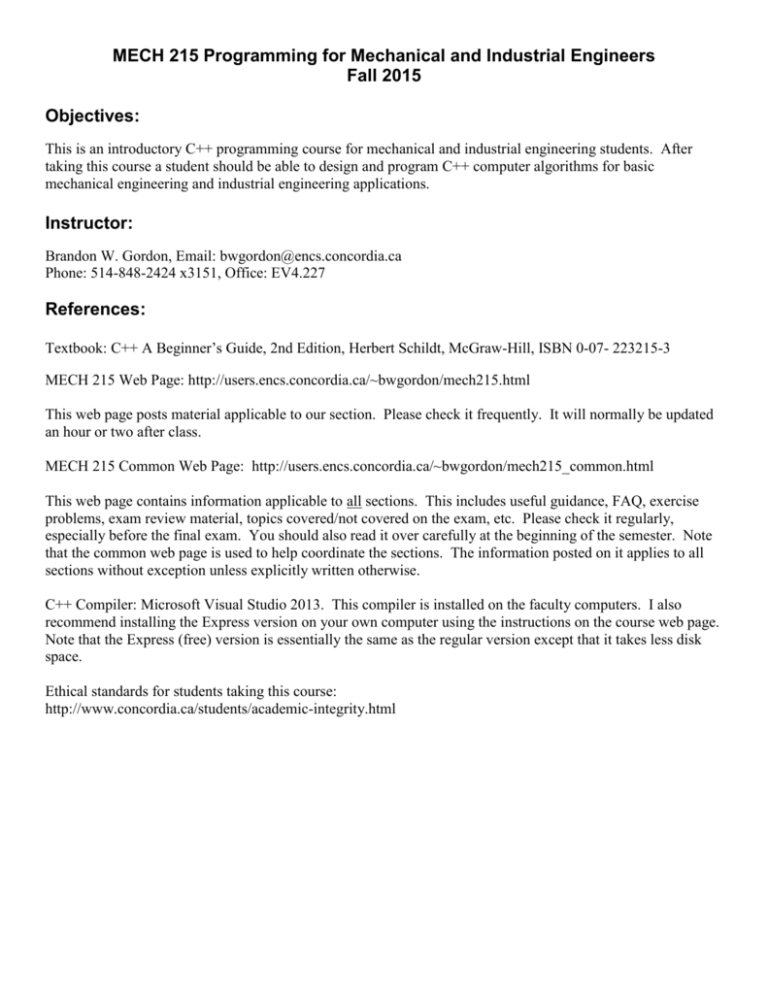
MECH 215 Programming for Mechanical and Industrial Engineers Fall 2015 Objectives: This is an introductory C++ programming course for mechanical and industrial engineering students. After taking this course a student should be able to design and program C++ computer algorithms for basic mechanical engineering and industrial engineering applications. Instructor: Brandon W. Gordon, Email: bwgordon@encs.concordia.ca Phone: 514-848-2424 x3151, Office: EV4.227 References: Textbook: C++ A Beginner’s Guide, 2nd Edition, Herbert Schildt, McGraw-Hill, ISBN 0-07- 223215-3 MECH 215 Web Page: http://users.encs.concordia.ca/~bwgordon/mech215.html This web page posts material applicable to our section. Please check it frequently. It will normally be updated an hour or two after class. MECH 215 Common Web Page: http://users.encs.concordia.ca/~bwgordon/mech215_common.html This web page contains information applicable to all sections. This includes useful guidance, FAQ, exercise problems, exam review material, topics covered/not covered on the exam, etc. Please check it regularly, especially before the final exam. You should also read it over carefully at the beginning of the semester. Note that the common web page is used to help coordinate the sections. The information posted on it applies to all sections without exception unless explicitly written otherwise. C++ Compiler: Microsoft Visual Studio 2013. This compiler is installed on the faculty computers. I also recommend installing the Express version on your own computer using the instructions on the course web page. Note that the Express (free) version is essentially the same as the regular version except that it takes less disk space. Ethical standards for students taking this course: http://www.concordia.ca/students/academic-integrity.html Grading Scheme: Scheme A Quizzes: 10% Midterm Exam: 35% Final Exam: 55% Scheme B Quizzes: 10% Final Exam: 90% Notes: 1) The assignments and labs are not submitted. Solutions will be regularly posted. 2) Your final grade will be obtained from the best result of Scheme A and Scheme B. 3) The final exam is normally more difficult than the midterm exam so you should study hard for the midterm. 4) The quizzes, midterm, and final exam are closed book. No calculators are permitted. 5) The quizzes (2-3 in number) will be based upon the labs, assignments, and lectures. 6) Each section will have their own labs, assignments, and midterm exams. However, the final exam will consist of mostly common material. 7) There are no labs and tutorials in the first week. * In the event of extraordinary circumstances beyond the University's control, the content and/or evaluation scheme in this course is subject to change. Lecture Topics: 1) Introduction to digital computers and computer programming 2) Writing, compiling, and debugging programs 3) Data types 4) Operators and expressions 5) Program control statements (if, else, while, for, etc.) 6) Arrays (single dimensional and multidimensional) and C strings 7) Functions and modular programming 8) Pointers 9) Introduction to classes and object oriented programming 10) File Input/Output 11) Programming applications
